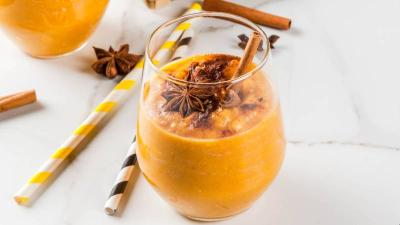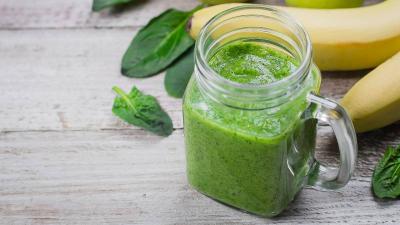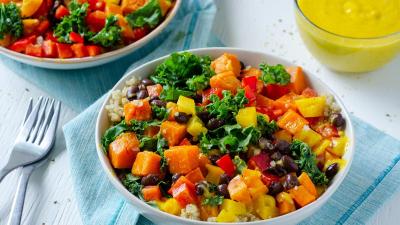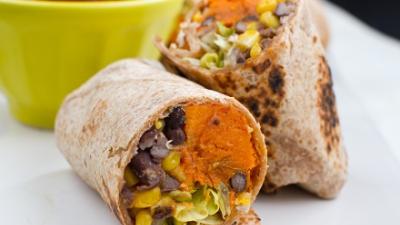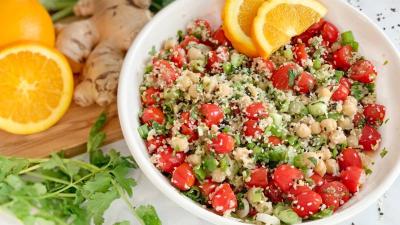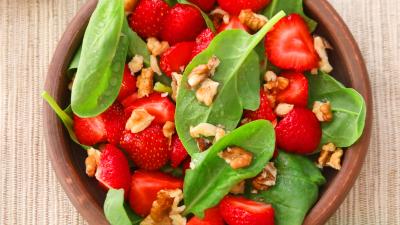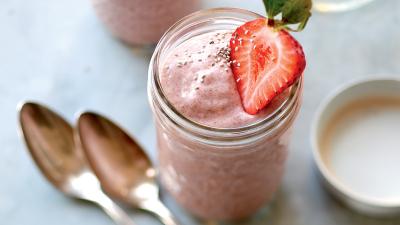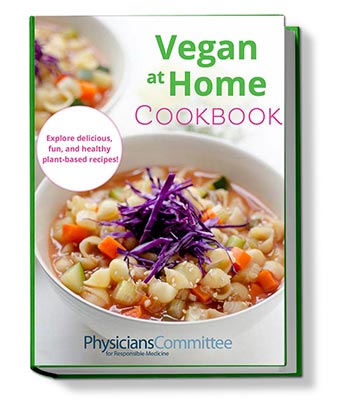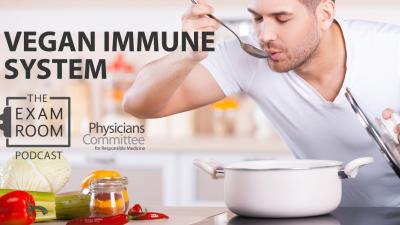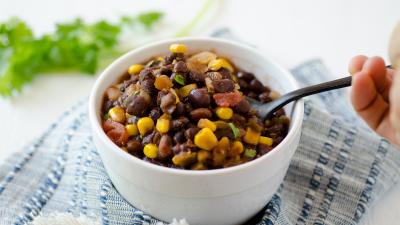Foods To Boost the Immune System

Give your immune system a boost with healthful, plant-based foods.
As coronavirus (COVID-19) has impacted communities around the world, many people have wondered whether there are steps they can take to stay healthy. Preventive measures—such as wearing a mask, getting vaccinated when you're eligible, handwashing, avoiding contact with sick individuals, and good hygiene—can help to reduce the risk for COVID-19 and other viruses, bacteria, and pathogens.
In addition, however, there is evidence that nutrition and other lifestyle measures influence immune strength and susceptibility to infectious diseases. Whether these measures do or do not influence susceptibility to COVID-19 or its clinical course is not yet known. However, there is every reason to put what we do know about foods and immune defenses to use. Here is what we know now:
Diet
Eating a low-fat, plant-based diet may help give the immune system a boost. The immune system relies on white blood cells that produce antibodies to combat bacteria, viruses, and other invaders. Vegetarians have been shown to have more effective white blood cells when compared to nonvegetarians, due to a high intake of vitamins and low intake of fat.1
Eating a low-fat diet may also be protective. Studies have shown that limiting dietary fat helps strengthen immune defenses. Research also shows that oil may impair white blood cell function and that high-fat diets may alter the gut microbiota that aid in immunity.2
Maintaining a healthy weight can also benefit the immune system. Obesity has been linked to increased risk for influenza and other infections such as pneumonia.3 Plant-based diets are effective for weight loss, because they are rich in fiber, which helps fill you up, without adding extra calories. Fiber can also lower BMI, which is linked to improved immunity.4 A plant-based diet has also been shown to reduce inflammatory biomarkers.5
Vitamins, Minerals, and Antioxidants
Studies have shown that fruits and vegetables provide nutrients—like beta-carotene, vitamin C, and vitamin E—that can boost immune function. Because many vegetables, fruits, and other plant-based foods are also rich in antioxidants, they help reduce oxidative stress.6
Beta-Carotene: Beta-carotene is a powerful antioxidant that can reduce inflammation and boost immune function by increasing disease-fighting cells in the body. Excellent sources include sweet potatoes, carrots, and green leafy vegetables.
Vitamins C and E: Vitamins C and E are antioxidants that help to destroy free radicals and support the body’s natural immune response. Sources of vitamin C include red peppers, oranges, strawberries, broccoli, mangoes, lemons, and other fruits and vegetables. Vitamin E sources include nuts, seeds, spinach, and broccoli.
Vitamin D: Research shows vitamin D supplementation may reduce the risk for viral infections, including respiratory tract infections, by reducing production of proinflammatory compounds in the body. Increased vitamin D in the blood has been linked to prevention of other chronic diseases including tuberculosis, hepatitis, and cardiovascular disease. Food sources of vitamin D include fortified cereals and plant-based milks and supplements.7
Zinc: Zinc is a mineral that can help boost white blood cells, which defend against invaders. Sources include nuts, pumpkin seeds, sesame seeds, beans, and lentils.
Sleep
Our bodies need sleep to rest and recharge. Without a sufficient amount of sleep, we increase our risk for developing serious health problems—like heart disease, Alzheimer’s disease, and obesity. Inadequate sleep has also been linked to suppressed immune function. One study found that those who sleep fewer than five hours per night are more likely to have recently suffered a recent cold compared with those who sleep more.
Need help falling asleep? Try adding healthful fruits, vegetables, grains, and beans to your diet. One study found that diets rich in fiber and low in saturated fat can lead to deeper, more restorative sleep. Learn more about how a plant-based diet can lead to better sleep.
Boost your immune system with these plant-powered recipes!
These recipes contain ingredients that are rich in beta-carotene, vitamin C, vitamin E, and other nutrients that can support immune function. For more recipes and to get started on a plant-based diet, visit our free 21-Day Vegan Kickstart!
Vegan At Home Cookbook
Download our free e-book with more recipes to get started on a plant-based diet! Fill out the form below and the download link will be delivered to your email inbox.
References
- Malter M, Schriever G, Eilber U. Natural killer cells, vitamins, and other blood components of vegetarian and omnivorous men. Nutr Cancer. 1989;12:271-278; Carddock JC, Neale EP, People GE, Probst YC. Vegetarian-based dietary patterns and their relation with inflammatory and immune biomarkers: a systematic review and meta-analysis. Adv Nutr. 2019;10:433-451.
- Rinninella E, Cintoni M, Raoul P, et al. Food components and dietary habits: keys for a healthy gut microbiota composition. Nutrients. Published online October 7, 2019; Soldati L, Di Renzo L, Jirillo E, Ascierto PA, Marincola FM, De Lorenzo A. The influence of diet on anti-cancer immune responsiveness. J Transl Med. 2018;16:75-93; Wood LG, Attia J, Mcelduff P, Mcevoy M, Gibson PG. Assessment of dietary fat intake and innate immune activation as risk factors for impaired lung function. Eur J Clin Nutr. 2010;64:818-825; Rasmussen LB, Kiens B, Pedersen BK, Richter EA. Effect of diet and plasma fatty acid composition on immune status in elderly men. Am J Clin Nutr. 1994;59:572-577.
- Alwarawrah Y, Kiernan K, MacIver NJ. Changes in nutritional status impact immune cell metabolism and function. Front Immunol. 2018;9:1055-1069.
- Haddad EH, Berk LS, Kettering JD, Hubbard RW, Peters WR. Dietary intake and biochemical, hematologic, and immune status of vegans compared with nonvegetarians. Am J Clin Nutr. 1999;70(3 Suppl):586S-593S.
- Eichelmann F , Schwingshackl L, Fedirko V, Aleksandrova K. Effect of plant-based diets on obesity-related inflammatory profiles: a systematic review and meta-analysis of intervention trials. Obes Rev. 2016;17:1067-1079.
- Barnard ND, Goldman DM, Loomis JF, et al. Plant-based diets for cardiovascular safety and performance in endurance sports. Nutrients. 2019;11(1). pii: E130.
- Grant WB, Lahore H, McDonnell SL, et al. Evidence that vitamin D supplementation could reduce risk of influenza and COVID-19 infections and deaths. Nutrients. 2020;12:988; Chung C, Silwal P, Kim I, Modlin RL, Jo EK. Vitamin D-cathelicidin axis: at the crossroads between protective immunity and pathological inflammation during infection. Immune Netw. 2020;20:e12-38.
